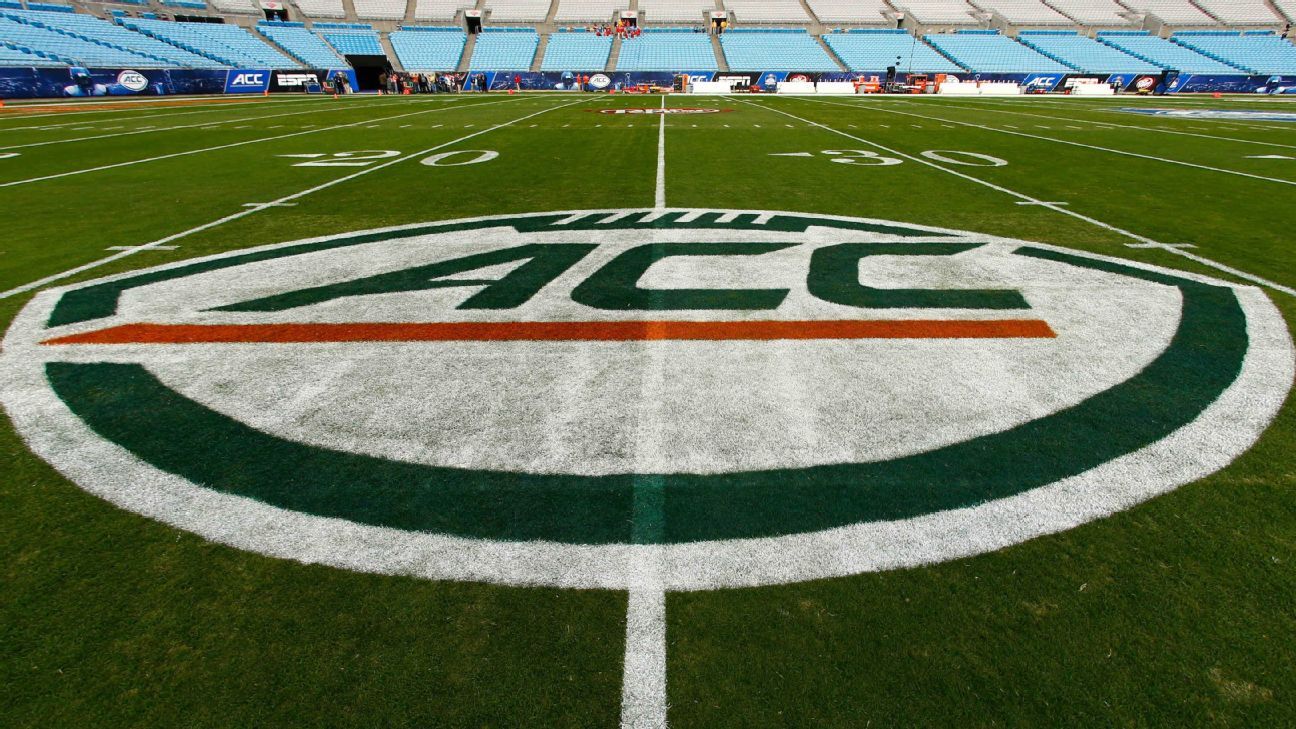Sources: ACC to discuss expansion in Friday call


Andrea Adelson, ESPN Senior WriterAug 31, 2023, 06:22 PM ET
ACC presidents and chancellors are scheduled to have a phone call Friday morning to discuss expansion again, multiple sources told ESPN.
While it remains unclear whether there are enough votes to add Cal, Stanford and SMU, there is hope for a resolution to the monthlong conversations. The presidents call was initially supposed to happen Monday, but was postponed after a North Carolina faculty member was shot and killed on campus.
There are four schools that have been against the additions: Clemson, Florida State, North Carolina and NC State. The ACC needs 12 out of its 15 schools to vote yes to expand.
The ACC will not take an official vote until commissioner Jim Phillips knows they have the 12 yeses needed to approve expansion, sources said. There is optimism layered in ambiguity from the schools out West, who are simultaneously making plans for a yes vote but uncertain whether it will arrive.
On Thursday evening, UNC-CH Board of Trustees Chair David L Boliek Jr. confirmed he and vice chair John P. Preyer sent out a statement against expansion, citing numerous concerns — including long-distance travel and an inability to address “the income disparity ACC members face.”
“The strong majority of the University of North Carolina at Chapel Hill’s Board of Trustees opposes the proposed expansion of the Atlantic Coast Conference to include Stanford University, the University of California, Berkeley, and Southern Methodist University,” the statement read. “Although we respect the academic excellence and the athletic programs of those institutions, the travel distances for routine in-conference competitive play are too great for this arrangement to make sense for our student athletes, coaches, alumni and fans. Furthermore, the economics of this newly imagined transcontinental conference do not sufficiently address the income disparity ACC members face. Without ironclad assurances that the proposed expansion serves the interest of UNC-Chapel Hill, we believe it should be voted down.”
The ultimate vote belongs to UNC Chancellor Kevin M. Guskiewicz.
With Florida State and Clemson seemingly entrenched in their positions against expansion, that means all eyes potentially turn to NC State. The Wolfpack have long been viewed as the most vulnerable of the four dissenters. But there has been no definitive indication as of Thursday evening that chancellor Randy Woodson has changed his vote, multiple sources said.
There are also political factors at play for North Carolina and NC State. The two schools generally vote the same way, as was the case the first time a straw poll was taken three weeks ago. But sources indicated they do not necessarily need to vote as a block.
Discussions about adding the three schools gained steam over the past week after a new financial model was presented to help alleviate concerns from the four schools that were against.
Sources indicated SMU will take no television money for seven years, while Stanford and Cal will take 30 percent. That is expected to create a pool of between $50-60 million annually to divide among ACC schools. Some of that would be distributed to all members, and the rest would be put into a pool for success initiatives.
Whether this additional money is enough to get to 12 votes remains to be seen. If the votes are there to expand, Cal, Stanford and SMU would be expected to enter for the 2024-25 season in all sports. The potential move comes after the Pac-12 spiraled in the wake of eight schools departing in recent weeks.